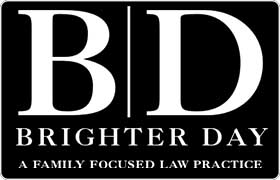Manitou Springs Divorce & Family Law Lawyer, Colorado
Sponsored Law Firm
-
 x
x

Click For More Info:
-
Brighter Day Law
1127 N Weber St Colorado Springs, CO 80903» view mapDivorce & Family Law A Family Focused Law Practice
Sanders Law Firm’s core value is to protect your rights and achieve your goals.
800-930-7641
Jason Wayne Downie
Real Estate, Lawsuit & Dispute, Family Law, Business
Status: In Good Standing Licensed: 28 Years
Mary Melissa Daugherty
Immigration, Family Law, Divorce & Family Law, Animal Bite
Status: In Good Standing Licensed: 12 Years
Jesse Thomas Feinsod
Employment, Divorce, Criminal, Consumer Protection
Status: In Good Standing Licensed: 9 Years
Tzuhsun Yu
Personal Injury, Employee Rights, Civil Rights, Family Law
Status: In Good Standing Licensed: 8 Years
 Angela Jones Colorado Springs, CO
Angela Jones Colorado Springs, CO
